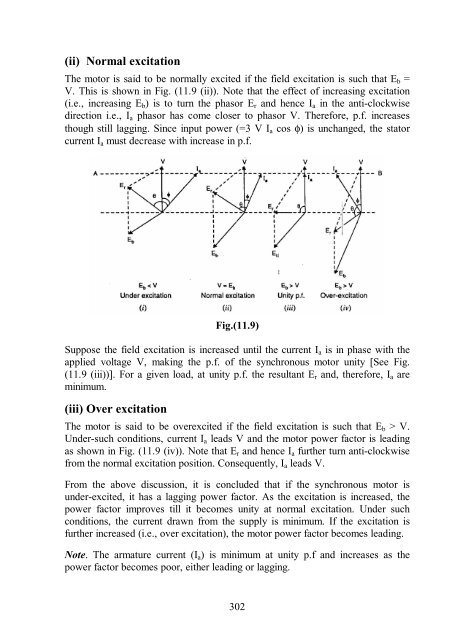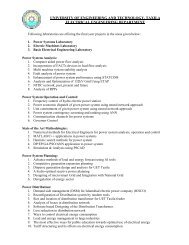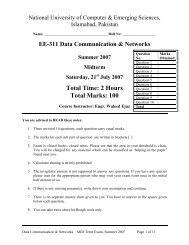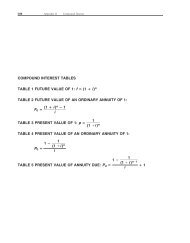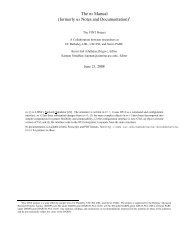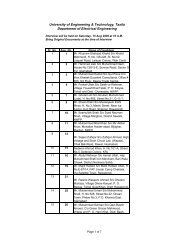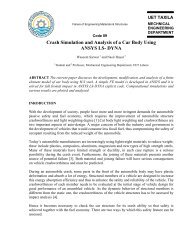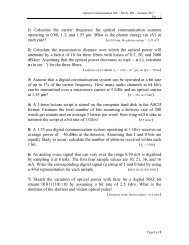Synchronous Motors
Synchronous Motors
Synchronous Motors
Create successful ePaper yourself
Turn your PDF publications into a flip-book with our unique Google optimized e-Paper software.
(ii) Normal excitation<br />
The motor is said to be normally excited if the field excitation is such that E b =<br />
V. This is shown in Fig. (11.9 (ii)). Note that the effect of increasing excitation<br />
(i.e., increasing E b ) is to turn the phasor E r and hence I a in the anti-clockwise<br />
direction i.e., I a phasor has come closer to phasor V. Therefore, p.f. increases<br />
though still lagging. Since input power (=3 V I a cos φ) is unchanged, the stator<br />
current I a must decrease with increase in p.f.<br />
Fig.(11.9)<br />
Suppose the field excitation is increased until the current I a is in phase with the<br />
applied voltage V, making the p.f. of the synchronous motor unity [See Fig.<br />
(11.9 (iii))]. For a given load, at unity p.f. the resultant E r and, therefore, I a are<br />
minimum.<br />
(iii) Over excitation<br />
The motor is said to be overexcited if the field excitation is such that E b > V.<br />
Under-such conditions, current I a leads V and the motor power factor is leading<br />
as shown in Fig. (11.9 (iv)). Note that E r and hence I a further turn anti-clockwise<br />
from the normal excitation position. Consequently, I a leads V.<br />
From the above discussion, it is concluded that if the synchronous motor is<br />
under-excited, it has a lagging power factor. As the excitation is increased, the<br />
power factor improves till it becomes unity at normal excitation. Under such<br />
conditions, the current drawn from the supply is minimum. If the excitation is<br />
further increased (i.e., over excitation), the motor power factor becomes leading.<br />
Note. The armature current (I a ) is minimum at unity p.f and increases as the<br />
power factor becomes poor, either leading or lagging.<br />
302


